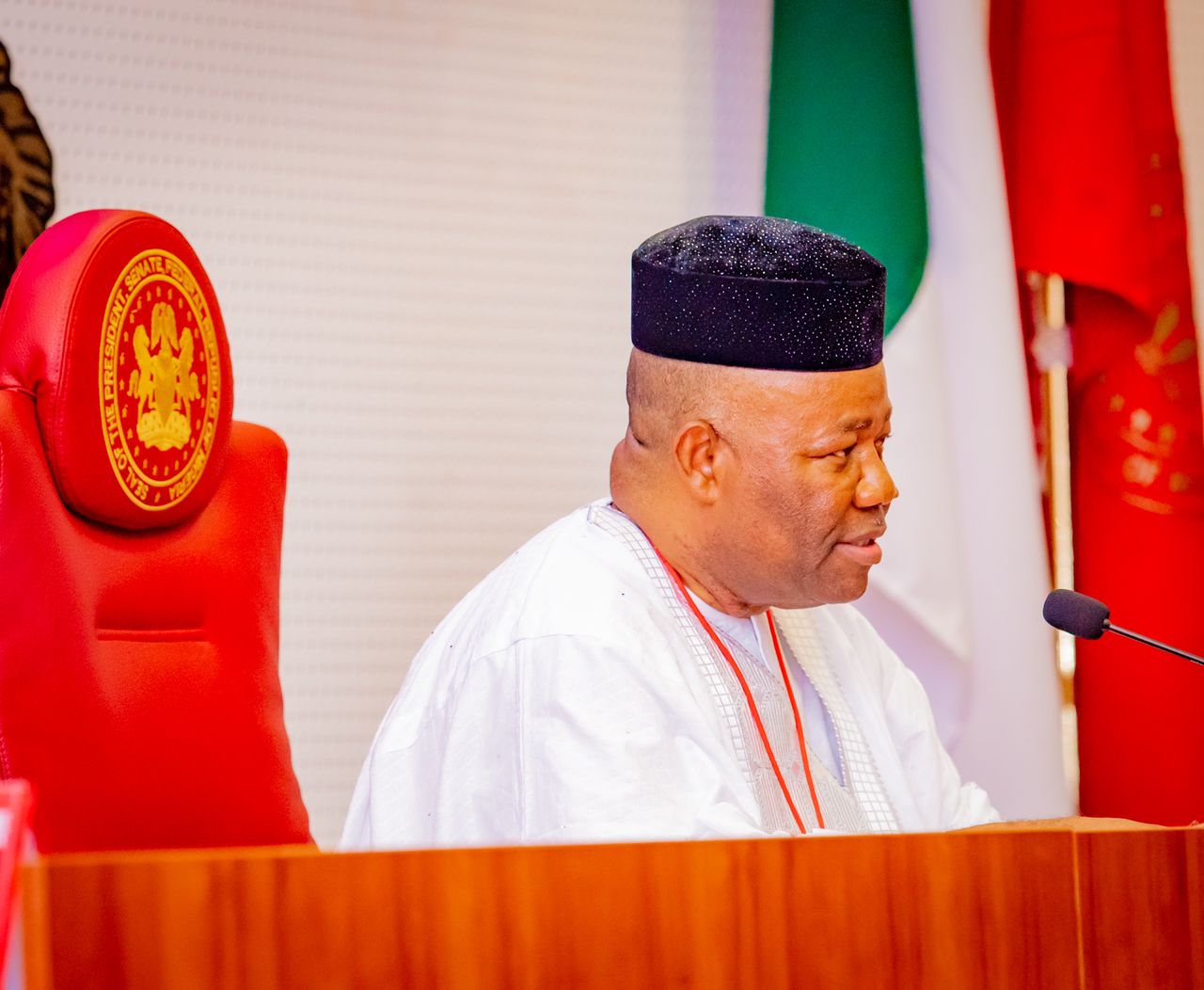Akpabio and the problem of 10th Senate
Now that former governor Goodswill Akpabio has emerged as Senate president, the stage is set for the “contest” between the executive and legislature. Nigerian democracy is failing because of the failure of the feedback and control systems vested in the National Assembly in general, and Senate in particular. This is indicated by the lack of […]

Now that former governor Goodswill Akpabio has emerged as Senate president, the stage is set for the “contest” between the executive and legislature. Nigerian democracy is failing because of the failure of the feedback and control systems vested in the National Assembly in general, and Senate in particular. This is indicated by the lack of independence of the legislature and disregard for constitutionality or the rule of law.
All said and done Nigeria’s democracy has failed in its objectives because of non-adherence to the concept of separation of powers. The three arms of government are expected to operate independently and not simply be dependent upon the executive.
Nigerians yearn for a government that is honest, accountable and responsive to their needs, but when the principle of separation of powers isn’t adhered to, the sort of insensitivity, tyranny and caprice witnessed in the Buhari administration is only to be expected! While it’s good to have a progressive legislative arm of government which cooperates with the executive to foster development, a situation in which the Senate becomes totally subservient and cooperates with the executive to approve financial unconstitutionality, and anti-people policies rubbish the whole concept of the separation of powers and destroys the checks and balances contained in the constitution.
Unarguably, the worst Senate in the nation’s history was the 9th which declined to check the excesses of the executive, and wasn’t at all worthy of respect. The immediate past Senate president pledged unreserved loyalty to the executive rather than to the constitution, and the results were disastrous. Every conceivable constitutional breach was carried out, oversight functions were meaningless, and the nation was plunged into resultant abominable levels of misery and deprivation.
Both the current and the immediate past Senate presidents’ paths to being “re-elected” exemplify the high levels of unconstitutionality, and lack of integrity pervading Nigerian politics which allows the executive arm of government to freely break all constitutional limitations on their power, and flout all rules regarding public finances.
Even though Senator Akpabio owes a political debt to the executive, who facilitated his emergence, there is nothing to suggest that the 10th Senate under a former governor can possibly be worse than the 9th Senate under a career legislator. The presence of 14 former governors in the 10th Senate while several others failed in their bids explains why the upper chamber is described as a “retirement home” for those who paradoxically got the nation into a mess in the first place!
Although they are supposed to promote integrity, honesty and responsibility in the management of public resources, Nigerian governors are notoriously bad at managing finances and good at incurring debts! The immediate past governors of 11 states handed over accumulated debts and liabilities of about N3 trillion as a result of misplaced loyalty, coercion, or “settlement”.
State houses of assembly never turned down their requests to approve loans. The same thing happened at the federal level and it’s difficult to see how the Senate president has the moral right to control profligacy of the executive.
In order to prove that their focus is serving the public interest rather than looking after themselves, it’s necessary for former governors serving as senators, ministers or president to agree to demands by the Socio-Economic and Accountability Project (SERAP) that they all disclose the total amount of life pensions that they have received from their states since leaving office.
SERAP claims, quite correctly, that the collection of life pensions and additional salary by former governors is inconsistent with constitutional oaths of office, incompatible with the object and purpose of public office, and amounts to private self-interest detrimental to public interest. SERAP believes that ending such practices will improve public confidence in the integrity and honesty of both the Senate and the Presidency.
With regards to legitimacy, the Judiciary routinely complains about the impunity with which government, its officials, and its agencies disregard or flout court orders. The federal government has yet to obey a court order which restrains ex-governors who are senators or ministers from receiving retirement benefits while drawing normal salaries and allowances in their new political offices.
In the ruling of case number FHL/L/1497/2017 Justice Oguntoyibo ordered the Nigerian government to recover pension payments made to those who fall into this category. An additional problem for the Senate is that almost to a man, Nigerian governors show little or no respect to the legislature, and there is no record of any law conceptualised by a governor which actually uplifted his people and was not motivated by either the desire to increase Internally Generated Revenue or the desire to bequeath to themselves totally immoral personal pensions and benefits.
Our governors are renowned for treating their state legislatures as a contemptible constitutional nuisance and subjugating them. It’s ironic that with such antecedents they decide to “retire” into legislative activities in the National Assembly! There is really no reason why they should expect to be respected by the executive and not treated in the same disrespectful manner in which they treated their state legislators.
Their antecedents preclude them from a moral right to either check the excesses of the executive, or refuse to be subservient in the same manner in which they made state assemblies subservient to them. This is the problem the nation faces under the 10th Senate.
